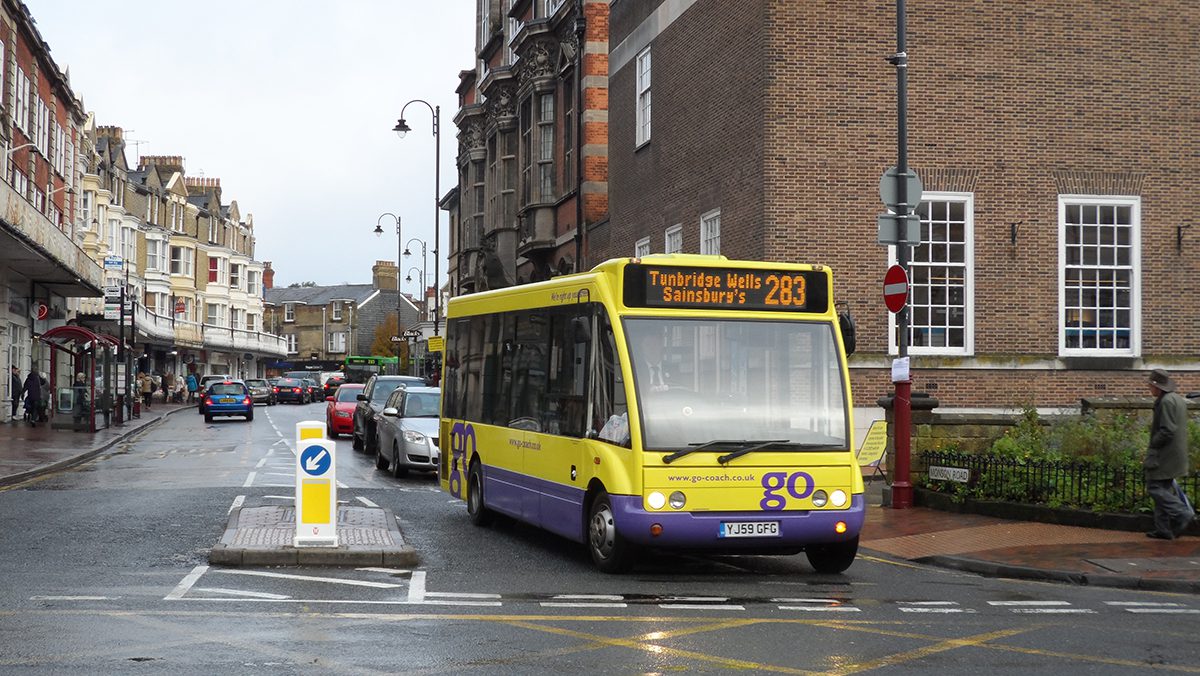
Schemes which would see passengers order on-demand bus services should be introduced in Scotland, a leading mobility charity has said.
The ‘flexible bus’ initiative would allow operators to use ‘Demand Responsive Technology’ which would link local buses with the people who need them.
The proposal is among the ideas submitted by transport mobility charity CoMoUK in evidence to the Scottish Parliament’s Rural Economy and Connectivity Committee.
Similar schemes are up and running elsewhere in the UK including Flex Tees in the Tees Valley and Go Coach in Kent, which are being used to help connect passengers with essential services and have been keeping key workers moving during the Covid-19 crisis.
In Newport, the city’s ‘fflecsi’ service system replaces some scheduled local bus services with more flexible services rather than following a set timetable at fixed bus stops, and buses are ordered either via a mobile phone app or by calling a phone number.
The areas covered are designed to include key destinations such as hospitals and supermarkets.
CoMoUK has told MSPs that on-demand buses would be one way to help Scottish communities which have been cut-off following service reductions across the country, both in cities and rural areas, and ongoing concerns about the affordability of subsidised routes.
Prior to the coronavirus pandemic, bus travel was in decline, with the number of people using that mode of transport falling by around 100 million since 2008.
With many services currently struggling to attract passengers, now is considered the moment to introduce new schemes and assist operators.
The proposal is contained in evidence submitted to the Holyrood committee’s call for views on the implications of Covid-19 in relation to funding for connectivity.
CoMoUK has also urged the Scottish Government to back more car-sharing and bike-sharing initiatives, and create mobility hubs across the country where various forms of shared transport could come together.
That would have a positive impact on the environment, the charity said, and would boost people’s physical and mental health while saving on household incomes.
CoMoUK has conducted research into the potential scale and benefits of shared transport in Scotland.
It showed that there are 634,000 households in Scotland that could potentially switch from car ownership to car club membership. This would save 87,000 tonnes of carbon per year through reduced mileage and the cleaner vehicles in car club fleets.
Bike sharing offers the potential to switch short car trips of 5km or less to cycling, saving another 64,000 tonnes of carbon per year without all those participating needing to buy, maintain or store their own bike.
Lorna Finlayson, Scotland director for CoMoUK, said:
“When we emerge from the devastating coronavirus crisis, there are a number of options to change the way people travel for the better.
“That includes initiatives like bike-sharing which improves mental and physical health, and car-sharing which cuts down on carbon emissions and saves users huge amounts of money.
“But there’s also the chance to think outside the box, and a flexible on-demand bus system could be of huge benefit.
“It would match up the increasingly empty spaces on buses with the very people who need those services, at the time they need them.
“People in urban and rural areas whose services may have been reduced or removed altogether could use technology to ‘order’ a bus, which could then be used right across their community.
“This is up-and-running elsewhere in the UK, and we’d like to see MSPs investigate the possibility for it to work here.
“We are at a critical point with public services funding and the need for a greener environment.
“We should use this moment to embed the shifting attitudes and commuter behaviour which occurred during lockdown to erode the dominance of the private car and pursue a sustainable, inclusive and affordable transport system which benefits everyone.”







